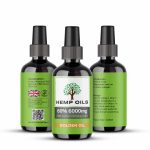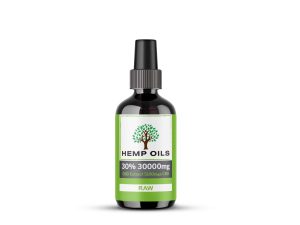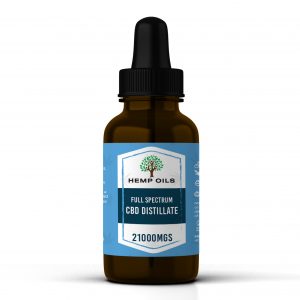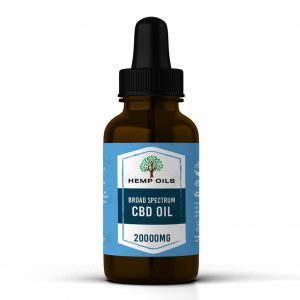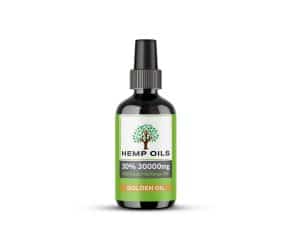Hemp oil has gained significant popularity in recent years due to its potential therapeutic benefits. From managing pain to reducing anxiety, hemp oil is believed to offer various health advantages. However, one common question that arises is how long does it take for hemp oil to work? The answer isn’t straightforward, as several factors influence its time to efficacy. In this article, we will explore these factors, understand the absorption process of hemp oil, discuss the timeframe for its therapeutic effects, and provide tips to optimize its efficiency.
Factors Affecting Hemp Oil’s Time to Efficacy
Several factors play a crucial role in determining how long it takes for hemp oil to work. Firstly, the dosage and concentration of the hemp oil product can significantly impact its effectiveness. Higher concentrations may lead to quicker results, while lower concentrations may require more time. Additionally, an individual’s unique body chemistry, metabolism, and overall health condition can also affect the time it takes for hemp oil to show its effects. Generally, people with faster metabolisms may experience the benefits of hemp oil sooner.
Other factors to consider include the method of consumption and the quality of the hemp oil. Different consumption methods such as oral ingestion, topical application, or inhalation may have varying absorption rates and, consequently, differing timeframes for efficacy. Furthermore, the quality and purity of the hemp oil can influence its bioavailability, which refers to the amount of active ingredient that can be absorbed and utilized by the body. High-quality, full-spectrum hemp oil products are generally considered more effective than those with lower quality or isolated compounds.
Understanding the Absorption Process of Hemp Oil
To comprehend the time it takes for hemp oil to work, it is crucial to understand its absorption process. When consumed orally, hemp oil is processed by the digestive system, where it is broken down and metabolized. Subsequently, the active compounds, such as cannabinoids and terpenes, are absorbed into the bloodstream and distributed throughout the body. This process typically takes around 30 minutes to 2 hours, depending on various factors mentioned earlier.
When applied topically, hemp oil is absorbed through the skin and interacts with the localized endocannabinoid receptors. The absorption rate can vary depending on the individual’s skin condition, thickness, and the specific product used. Inhalation methods, such as vaping or smoking, allow the hemp oil to directly enter the bloodstream through the lungs, resulting in more immediate effects. However, it is essential to note that inhalation methods may also have potential risks associated with lung health.
Timeframe for Hemp Oil’s Therapeutic Effects
The timeframe for experiencing the therapeutic effects of hemp oil varies from person to person. Some individuals may notice improvements within a few minutes to an hour, while for others, it may take a few days or even weeks. The desired therapeutic effects, such as pain relief or reduced anxiety, also influence the timeline. Acute symptoms may be alleviated more quickly compared to chronic conditions that require a longer duration of consistent hemp oil usage.
It is important to have realistic expectations when using hemp oil for its therapeutic effects. Patience and regular usage are key. It is advisable to start with a low dosage and gradually increase it over time, allowing the body to adjust and respond accordingly. Consulting with a healthcare professional is always recommended to determine the appropriate dosage and usage for individual needs.
Tips to Optimize Hemp Oil’s Efficiency
To optimize the efficiency of hemp oil, several tips can be followed. Firstly, it is essential to choose a high-quality hemp oil product from a reputable source. Ensure that the product is third-party tested for purity, potency, and absence of contaminants. Secondly, consider the method of consumption that suits your needs. Oral ingestion provides long-lasting effects, while topical application may be more suitable for localized concerns. Experimenting with different consumption methods can help find the most effective and comfortable option.
Consistency is key when using hemp oil. Establish a routine and take it consistently at the same time every day, allowing the body to build up the cannabinoids in the system. Keep a journal to track any changes or improvements experienced. Additionally, leading a healthy lifestyle by engaging in regular exercise, eating a balanced diet, and managing stress levels can enhance the overall effectiveness of hemp oil.
In conclusion, the time it takes for hemp oil to work depends on various factors such as dosage, concentration, individual body chemistry, and the quality of the product. Understanding the absorption process is crucial to managing expectations for its therapeutic effects. While some individuals may experience immediate relief, others may require consistent usage over a longer period. By following the tips mentioned above and consulting with a healthcare professional, individuals can optimize the efficiency of hemp oil and potentially benefit from its therapeutic properties.
